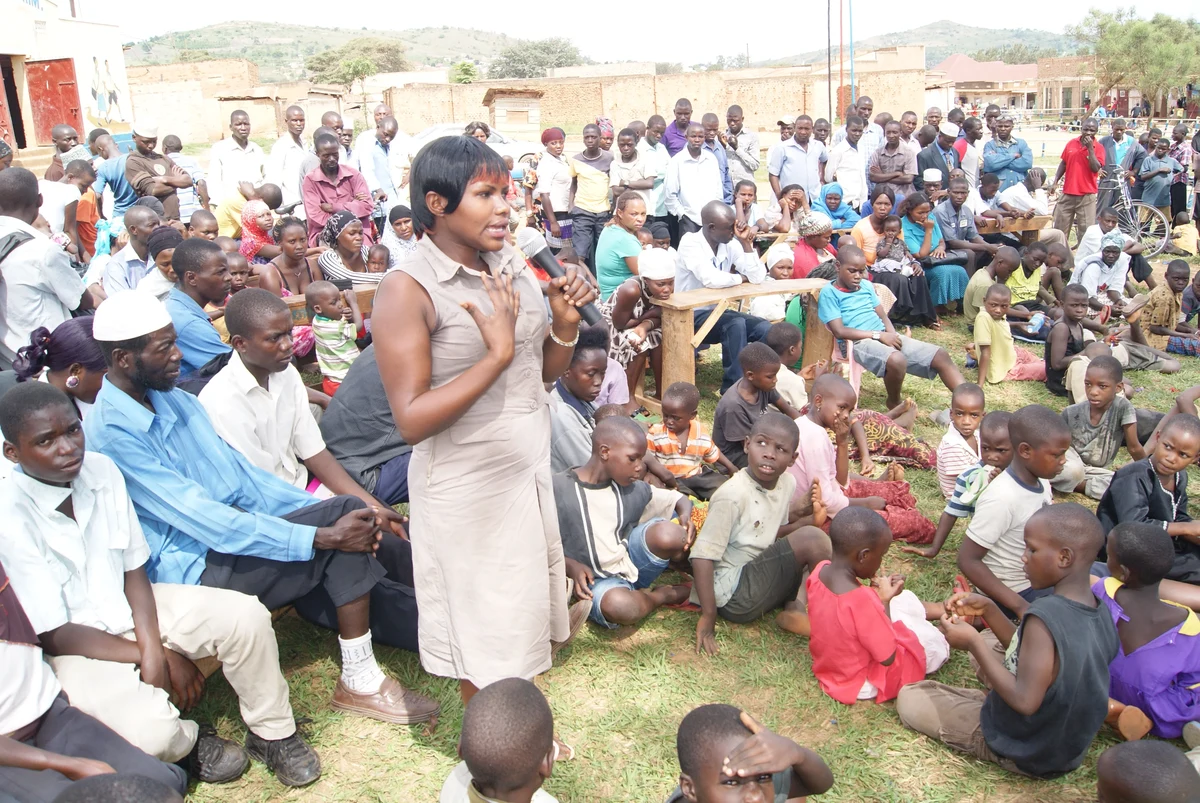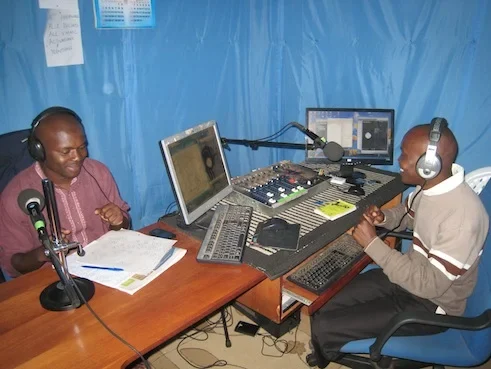As part of the YouGov-Cambridge Programme, YouGov is providing advice to the Cambridge Centre of Governance & Human Rights on a project called ‘Africa’s Voices’, where the Centre is developing a new methodology for public opinion gathering on the continent using interactive radio and mobile phones.
Working with YouGov and other partners, the Centre of Governance and Human Rights at the University of Cambridge (CGHR) has seized the opportunity created by the spread of mobile phones in sub-Saharan Africa and the popularity of interactive radio to pilot Africa’s Voices, an applied project for fostering discussion and gathering opinions through radio and mobile phones.
How it works
Using an explorative approach to understand participation, radio stations broadcast monthly questions about governance and development topics. Audiences reply using SMS messages which are collected and analysed by the Cambridge research team. So far, the project has sought opinions on banning the use of plastic bags, presidential term limits, universal primary education, HIV/AIDS and malaria, early marriage, fear of crime and use of fertilizers.

The methodology
During its first year, Africa’s Voices developed a unique methodology to gather opinions from hard-to reach communities using SMS. Radio stations in nine African countries participated in the project. The opinions from audiences were collected using FrontlineSMS and FreedomFone, open source and free software that allow the storage and management of mobile phone messages in a computer with limited Internet access. Starting with a survey approach, asking closed questions with predefined answers, the project has gradually been shaped to accommodate local voices and contexts.
Research challenges
It emerged during the early stages of the pilot that audience participation in interactive programmes followed everyday conversational rules. Across all the radio stations and questions, there was a clear preference for longer text messages. Moreover, closed-ended questions, with numerical options were found to limit the expression of opinions and exclude those citizens with poor survey literacy or technological skills from participating.
The typical SMS response combined a one-sided answer with personal information plus some considerations about the topic, e.g. “African presidents should be limited by their country’s constitution to serving a maximum of two terms in the office, because they never want to abandon power, we cannot allow them to have more than two terms” (Radio Nam Lolwe, Kenya).
The pilot also showed that having a voice, through the publicity generated by radio, matters for audiences.
The recognition of individual opinions and their contributions to the debates seem to be the key factor for participation in these interactive programmes. In the words of one listener of Radio BreezeFM in Zambia, “We need to start voicing out, because it’s from that single voice that other voices can follow.”
Interestingly, anonymity is not a concern for these audiences, who seem eager to send information that discloses their identity. However, the recognition of individual voices generates a tension with research ethics.
The compromise between anonymity and recognition is not the only challenge the project has faced.
There is a focus on particular forms of participation that do not lend themselves to ease of aggregation and analysis. Interactive radio formats, such as Africa’s Voices, can create new spaces for voice and discussion, with the potential to generate real-time, streaming and cross-national data. This information can be aggregated into public opinion indicators embedded to the context of local debates and knowledge. But the possibilities of analysing this type of big data have not been fully explored in the pilot stage of the project. The results of the different polls were presented only in terms of percentages of categories of opinions and themes extracted from the arguments supporting the answers.
Making use of big datasets—characterized by volume, variety and/or velocity—that were organically created through new communication technologies (internet and mobile phones) is a current concern in the social sciences. The footprint left by users of these technologies contains the potential to understand human behavior in real-life contexts at a large scale of cultures and social groups. But often, the organic data are unstructured and incomplete whose usefulness may not be directly related to its complexity. Additionally, organic data may carry imperfections that threaten the validity of social research: self-selection of cases; self-presentation bias; few covariates; and privacy and access issues.
Having now embraced open text answers, Africa’s Voices encourages natural forms of expression allowing the questions and SMS to be expressed in local languages (the main languages are Swahili, Chichewa/Nyanja, Luganda, Luo and Krio). This approach has resulted in large volumes of texts in mixed formats (textual and standard answers) and multiple languages, whose meaning cannot be detached from local realities.
This type of data can capture, in a genuine and meaningful way, public opinion of hard-to-reach communities, at the expense of rigorous scientific canons. But the analysis of such data, in terms of simple percentages and themes, is flawed by the non-representativeness of samples. This type of analyses is also inadequate to capture the uniqueness of voices, the richness of arguments and the dynamics of the discussions.
Africa’s Voices is now moving in the direction of exploring optimal solutions for data gathering and analysis, using innovative tools that allow meaning to be extracted from unstructured data in voice and text formats (cloud software and technology on speech recognition and machine based learning for opinion mining).

The next stage of the project also includes a methodological refinement to improve the representativeness of opinions for particular communities. Using cutting edge technology for engaging in interactive SMS sessions with audiences, individual voices can be linked to socio-demographical profiles, gathered in real time. Collaborating with YouGov, the project will investigate the potential of using such information for building post-hoc panels of respondents and for ensuring comparability of opinions among countries and socio-demographical clusters.
The value of voices that articulate personal narratives and contextualized experiences has been largely ignored in public opinion research. Drawn on rigorous scientific standards that ensure representativity of individuals, within and across societies, reliable and comparable measurements of attitudes, and aggregation of opinions into quantifiable indicators, public opinion has hitherto been gathered through heavily structured surveys detached from everyday real-life contexts and with limited space for individual voices to be expressed.
By contrast, voices more spontaneously expressed in inclusive public spaces provide an alternative, richer and arguably more accurate window to access individual opinions embedded in shared values and meanings. Identifying the conditions that sustain voice and debate helps to understand the nature of participation in Africa’s Voices.
But ‘valuing voice’ implies not only encouraging individual opinion and narratives but also creating spaces where these voices can be heard and make a difference to improving peoples’ lives.









